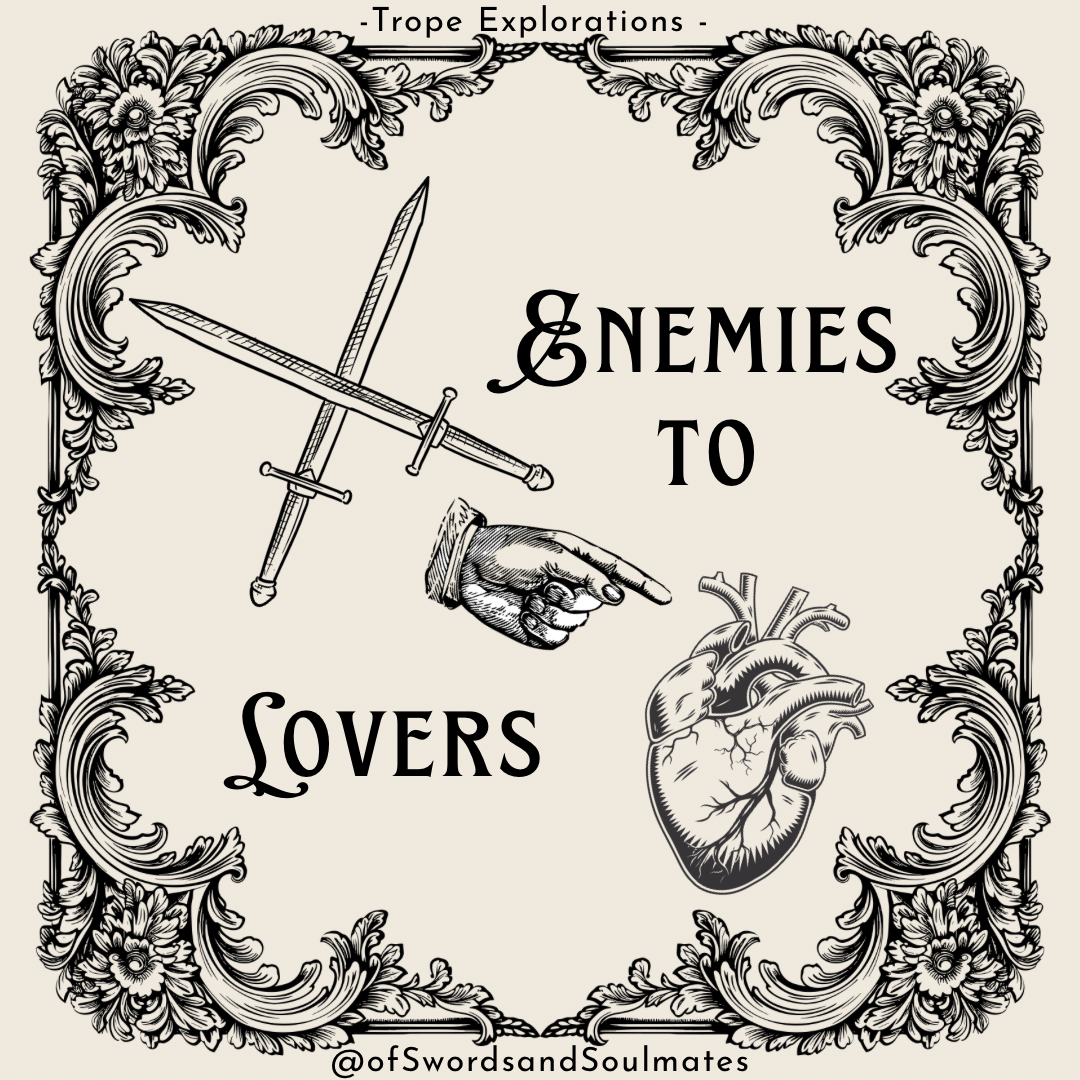Episode Forty
Why do we find ourselves so drawn to stories where characters who initially hate each other end up falling madly in love? The enemies to lovers trope has captivated audiences across centuries, from classic literature to blockbuster films and bestselling novels. In this episode, we unpack what makes this storytelling pattern so irresistibly compelling.
First, we break down what literary tropes actually are—not the negative clichés some might assume, but useful storytelling tools that help readers find patterns they enjoy. Think of tropes as a shared language that helps navigate the overwhelming world of books and entertainment. When someone mentions “enemies to lovers,” most romance readers immediately understand the emotional journey they’re signing up for.
The appeal of watching hatred transform into passion runs deep. We explore how this transformation taps into our belief that people can change, perspectives can shift, and even the most opposed individuals might find connection. There’s something uniquely satisfying about witnessing characters move from conflict to compassion, creating an intense emotional arc that feels earned when done well.
Our hosts share their favorite examples of enemies to lovers across media—from ancient Greek myths like Hades and Persephone to Jane Austen’s Pride and Prejudice, from Batman and Catwoman’s complicated relationship to modern romance bestsellers by Sarah J. Maas, Holly Black, and Carissa Broadbent. We also highlight beloved film examples including You’ve Got Mail, The Proposal, and Ten Things I Hate About You.
Whether you’re a longtime romance reader or just curious about what makes certain story patterns so popular, this episode offers insights into one of fiction’s most enduring and beloved tropes. Have you fallen for enemies to lovers stories? Listen now and join the conversation about why watching foes become forever keeps us turning pages and coming back for more.

Our Thoughts
Our Thoughts on the book.

“we love angst. I don’t know about the rest of you, but like something about somebody’s neck, you want to ring only a little bit, like not completely, but like a little bit, and then to watch the evolution of someone change and evolve to be worthy of the companion. Yeah, that’s pretty heart melting to me.


“I think passion at its root is to suffer and I think suffering in the beginning of these stories is common. As we introduce conflict into a more modern way of looking at passion, which would be romantically, and I think the characters move into this story, move through the stories and begin to shift from that the passion”


“I think that idea that we can all change, we can all be better and that even if we are at our worst, we’re still worthy of love in the end. I think that’s very appealing about that, that trope”


“that’s a classic plot device of serialized storytelling. I mean, you see it in soap operas, you see it in long running sitcoms, tv series, book series, etc. You see it all the time. The authors and creators keep that tension there because it keeps the people watching series, etc”
